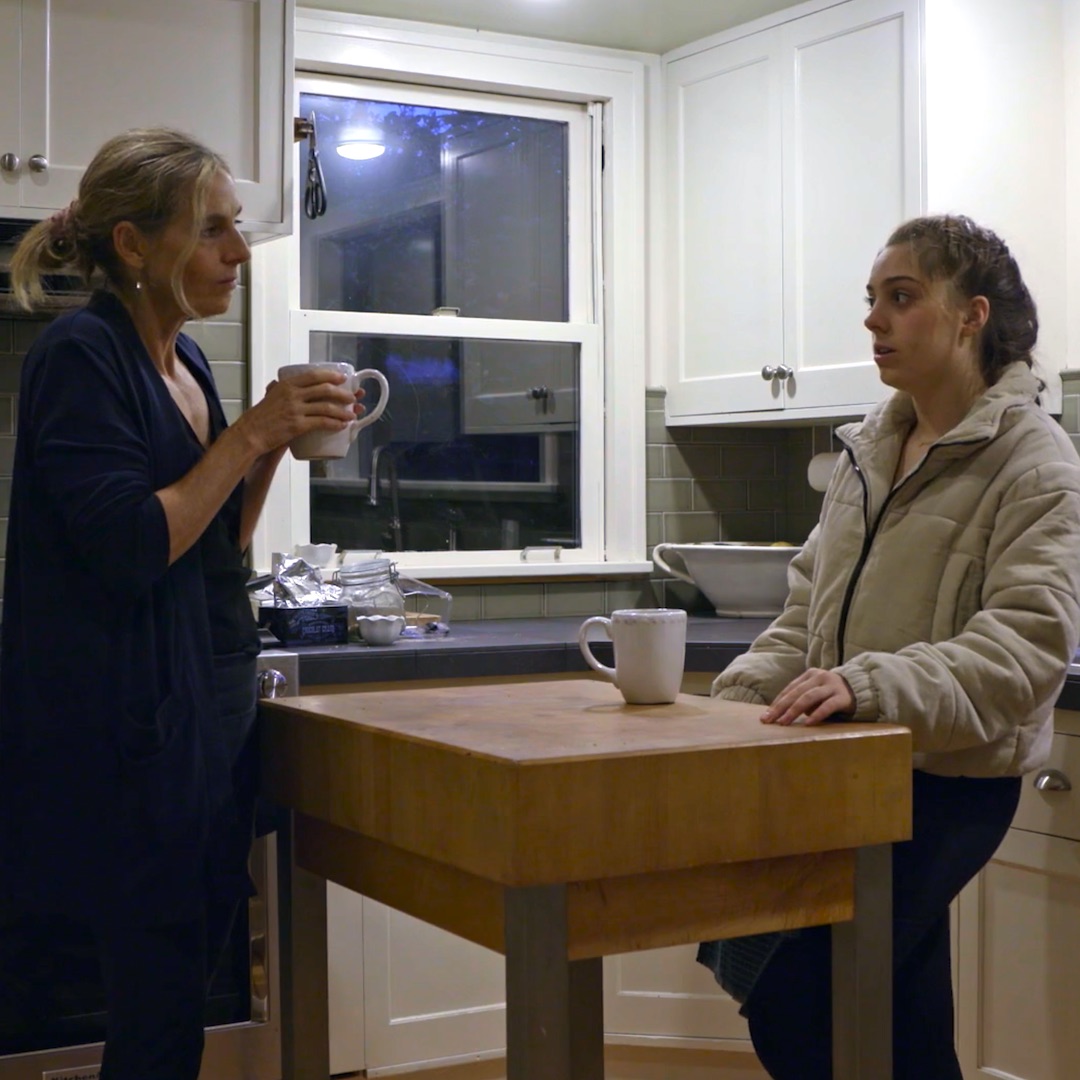


How comfortable are your kids talking to extended family and adult friends? One concern I often hear from parents is that they think screen time decreases face-to-face communication skills. I have not found any exceptional data around this issue. Families and friends will be together for the holidays and in these settings many kids and adults will gravitate towards their personal devices. When situations are uncomfortable or activity is slowed down this is accepted behavior these days. It upsets me when I see kids disappear into their screens when those special multigenerational opportunities for conversation are right in front of them.
In past years at my husband’s family get togethers, I always voted (alone) that the kids stay connected to the family and not disappear to a TV room. Sometimes I “won” and sometimes I "lost", but I always felt unsettled by the conflict. But, finally, after many years of this struggle, we now all agree that having my voice back then to ensure a balance between on-screen and off-screen time was a good thing. Now, that my kids are teenagers they usually choose on their own for the family interaction.
Learn more about showing our movies in your school or community!
Join Screenagers filmmaker Delaney Ruston MD for our latest Podcast

Learn more about our Screen-Free Sleep campaign at the website!
Our movie made for parents and educators of younger kids
Learn more about showing our movies in your school or community!
Learn more about showing our movies in your school or community!
Join Screenagers filmmaker Delaney Ruston MD for our latest Podcast

Learn more about our Screen-Free Sleep campaign at the website!
Our movie made for parents and educators of younger kids
Join Screenagers filmmaker Delaney Ruston MD for our latest Podcast
As we’re about to celebrate 10 years of Screenagers, we want to hear what’s been most helpful and what you’d like to see next.
Please click here to share your thoughts with us in our community survey. It only takes 5–10 minutes, and everyone who completes it will be entered to win one of five $50 Amazon vouchers.
How comfortable are your kids talking to extended family and adult friends? One concern I often hear from parents is that they think screen time decreases face-to-face communication skills. I have not found any exceptional data around this issue. Families and friends will be together for the holidays and in these settings many kids and adults will gravitate towards their personal devices. When situations are uncomfortable or activity is slowed down this is accepted behavior these days. It upsets me when I see kids disappear into their screens when those special multigenerational opportunities for conversation are right in front of them.
In past years at my husband’s family get togethers, I always voted (alone) that the kids stay connected to the family and not disappear to a TV room. Sometimes I “won” and sometimes I "lost", but I always felt unsettled by the conflict. But, finally, after many years of this struggle, we now all agree that having my voice back then to ensure a balance between on-screen and off-screen time was a good thing. Now, that my kids are teenagers they usually choose on their own for the family interaction.
Sign up here to receive the weekly Tech Talk Tuesdays newsletter from Screenagers filmmaker Delaney Ruston MD.
We respect your privacy.
How comfortable are your kids talking to extended family and adult friends? One concern I often hear from parents is that they think screen time decreases face-to-face communication skills. I have not found any exceptional data around this issue. Families and friends will be together for the holidays and in these settings many kids and adults will gravitate towards their personal devices. When situations are uncomfortable or activity is slowed down this is accepted behavior these days. It upsets me when I see kids disappear into their screens when those special multigenerational opportunities for conversation are right in front of them.
In past years at my husband’s family get togethers, I always voted (alone) that the kids stay connected to the family and not disappear to a TV room. Sometimes I “won” and sometimes I "lost", but I always felt unsettled by the conflict. But, finally, after many years of this struggle, we now all agree that having my voice back then to ensure a balance between on-screen and off-screen time was a good thing. Now, that my kids are teenagers they usually choose on their own for the family interaction.

When teens say they hate you, it often feels personal, but it may not truly be about you. Teens sometimes direct their overwhelming feelings toward the safest person in their life. Instead of responding with logic or backing down out of fear, check that your limits are fair, practice self-compassion, and focus on validation rather than correction. If conflict feels stuck, family counseling can help both sides feel heard and understood.
READ MORE >
Thoughtful family tech rules help protect kids’ wellbeing, learning, and sleep while strengthening connection at home. Using the fresh start of a new year, this post shares eight practical tech habits families can discuss and adapt together, including shared social media check-ins, screen time inventories, device-free meals, regular gaming breaks, and keeping phones out of bedrooms at night.
READ MORE >
Psychologist Jean Twenge explains how parental controls can support healthier tech use by protecting sleep, limiting late night device access, and reducing kids’ exposure to content they are not developmentally ready to handle. She discusses why third party parental control tools are often more effective and easier to use than built in options, while acknowledging that no system is perfect. Clear boundaries, combined with technology based limits, can reduce ongoing conflict and make screen time rules easier to enforce.
READ MORE >for more like this, DR. DELANEY RUSTON'S NEW BOOK, PARENTING IN THE SCREEN AGE, IS THE DEFINITIVE GUIDE FOR TODAY’S PARENTS. WITH INSIGHTS ON SCREEN TIME FROM RESEARCHERS, INPUT FROM KIDS & TEENS, THIS BOOK IS PACKED WITH SOLUTIONS FOR HOW TO START AND SUSTAIN PRODUCTIVE FAMILY TALKS ABOUT TECHNOLOGY AND IT’S IMPACT ON OUR MENTAL WELLBEING.
